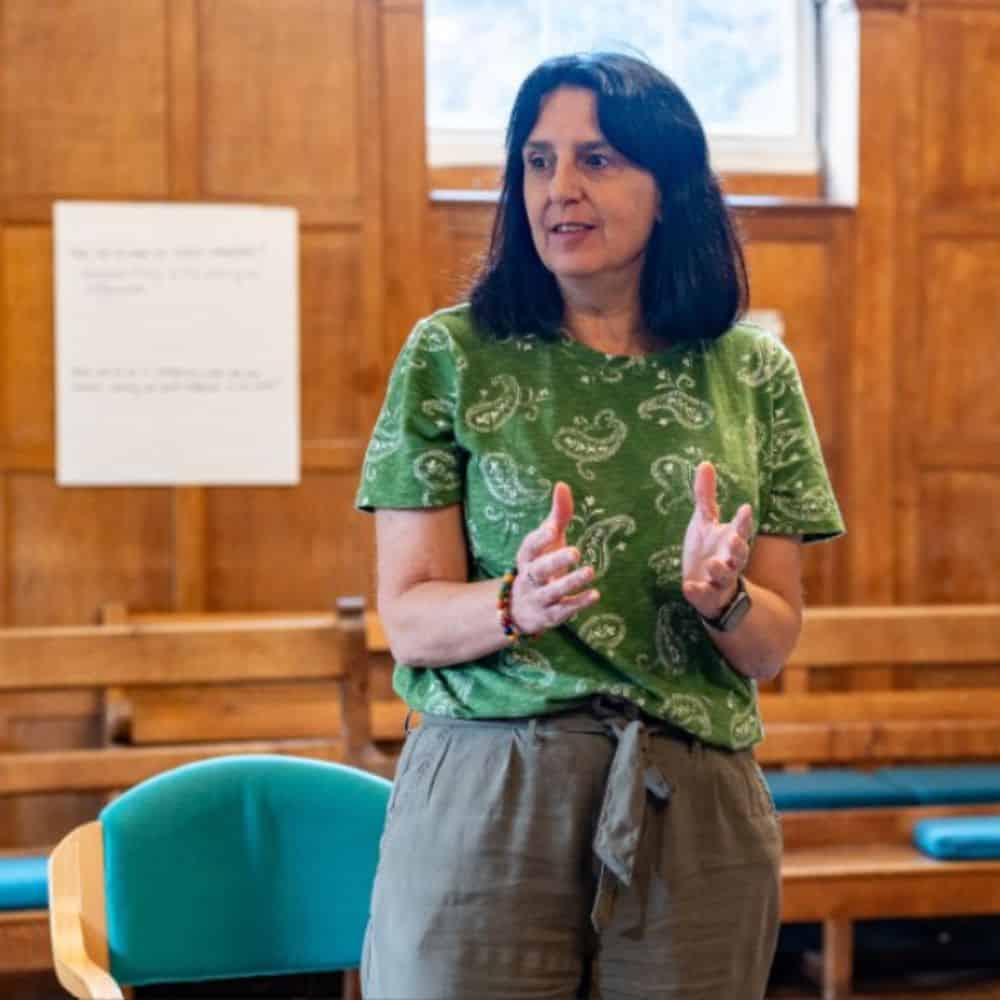Dr Karen Cripps of Oxford Brookes University Business School shares her findings on the missing ‘soft’ skills essential for success in sustainability roles.
A research project by Oxford Brookes Business School in partnership with the Climate Change Coaches surveyed 138 global sustainability professionals and conducted interviews with 21 senior sustainability leaders across sectors between December 2023 and April 2024.
The research revealed how the work of sustainability for the green transition is changing and highlighted the need for increasingly sophisticated soft skills.
The importance of ‘soft skills’ for sustainability leadership
Climate change is a human-caused problem that requires people-centred solutions. This implies a much broader skill and attribute set than technical knowledge alone.
Our study uses the term ‘soft skills’ to discuss those transferable, cross-functional skills that underpin core and technical knowledge competencies.
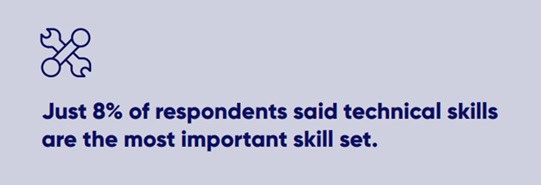
One of the most significant findings from our report is that only 8% of professionals surveyed considered technical skills to be more important than soft skills. 62% considered them equally important, and 30% thought soft skills were most important.
The top three skills identified in our survey align directly with IEMA’s sustainability skills framework:
- Collaborating and building coalitions (IEMA – Relationship Development)
- Empowering teams to identify their role in the transition (IEMA – Effective communication)
- Setting and inspiring vision (IEMA – Leadership for change)
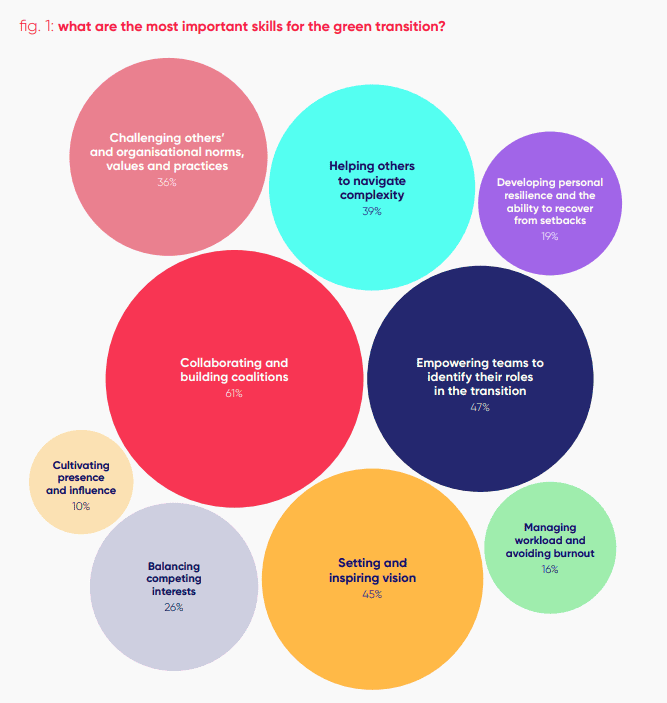
Which skills do you see as most important?
There has been a shift in the job market for green skills across both specialist and non-specialist sustainability roles. This means a demand for knowledge and technical expertise, practical competence, and desirable behavioural characteristics (Deloitte and IEMA, 2022). The trouble is that behavioural change can be more challenging to trigger and sustain.
Our research has identified that sustainability professionals require an increasingly diverse skill set to influence and engage colleagues across all levels and functions of the business.
One research participant said:
“They should know how to work with data in terms of collecting data, analysing data, and understanding greenhouse gas assessments so that they could support the annual report. The rest of it is very much someone very passionate about sustainability that can inspire others to also become more passionate about sustainability, and is able to communicate the data in a way that is relevant.”
Faced with resource scarcity and competing priorities across a business, those tasked with meeting climate-related targets need to draw on inner-resilience and empathy for the perspective of others.
“They need someone who can speak their day-to-day language and understand that duality – so as to not terrify them with a carbon management graph.”
Professionals can experience feelings of overwhelm, yet are highly motivated
Many sustainability professionals have a distinct and deeply personal commitment to environmental stewardship. This can be emotionally tough when they are operating in a space of ‘corporate dissonance,’ with contradictory and conflicting climate commitments.
One research participant said:
“If you start sort of despairing about your ability to have a positive impact in this space, then, it’s a self-fulfilling prophecy. You won’t have the impact you need. The leadership challenge really is about not shying away from the realities and trying to make the internal organisation, and clients face up to them. If you’re in this space, it can be quite tough.”
Over half of the respondents did not feel that senior management appreciated or understood the pressures associated with working on the Green Transition; have experienced burnout; and found it hard to stay motivated. Almost half did not feel that they received enough support for their well-being. Despite this, only a minority have considered leaving the job because of these pressures, which again speaks to personal commitment.
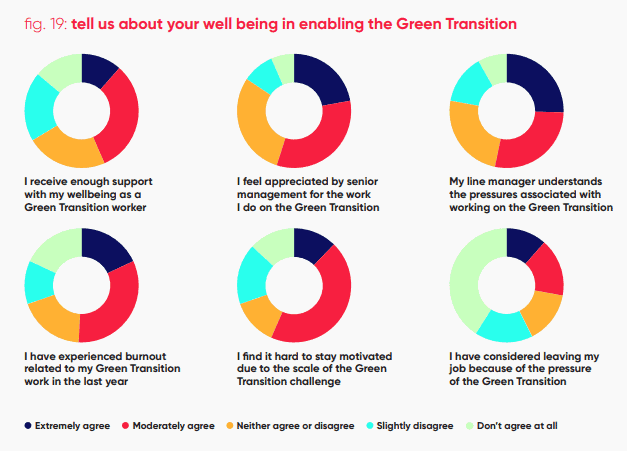
The psychology of change – enablers and blockers
The environmental challenges we face can be seen as a human change management challenges. To tackle them, we need to understand how to motivate new, different behaviours. Coaching skills help to shift attitudes and perspectives, and empower change.
“I think coaching is absolutely crucial. We often include coaching as one of those main elements of our leadership programmes so that they’re equipped with the tools to be able to make change.”
Our research showed that leadership climate coaching, and training in coaching skills can be beneficial to organisational learning and development but are underutilised. There is ample opportunity to embed individual and team coaching for climate conversations within existing broader coaching and other training programmes.
“A coaching approach would fit really nicely because that’s what we’re moving to for a proactive approach. I can see that being particularly useful and interesting in making our work more effective.”
By enabling more ‘climate conversations’ based on empathy and understanding of others’ values and priorities, resistance can be overcome, and innovative solutions can be unlocked from contributions across the workforce. The return on investment from climate coaching skills as a training and learning approach to get everyone on the pitch, regardless of their current state of readiness, is critical for integrated organisational transitions.
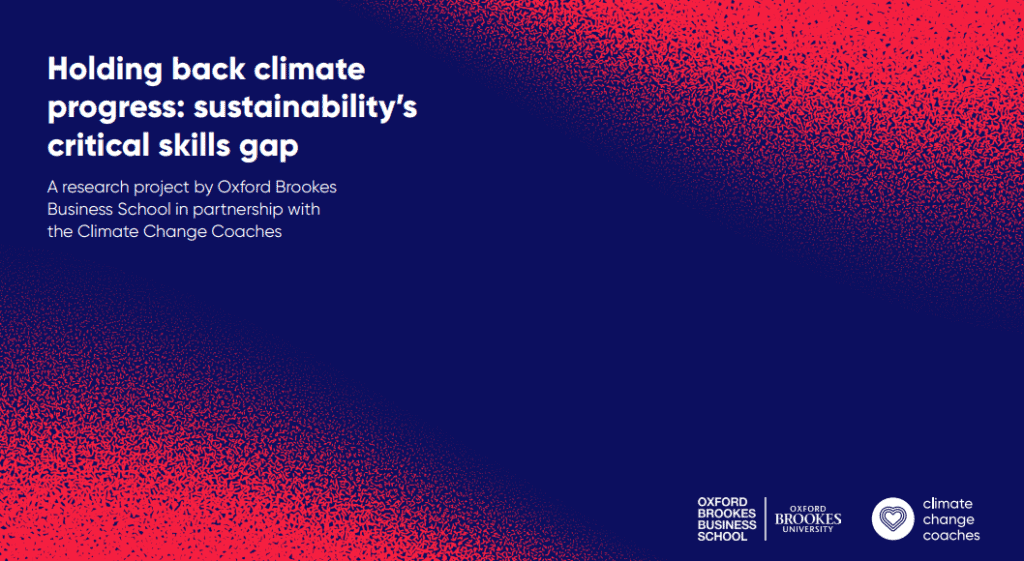
References: Climate Change Coaches and Oxford Brookes University (2024) Holding Back Climate Progress: Sustainability’s Green Skills Gap.
Author: Dr Karen Cripps, Senior Lecturer in Responsible Management and Leadership, Oxford Brookes University Business School.
Images: provided by the Author
Related articles
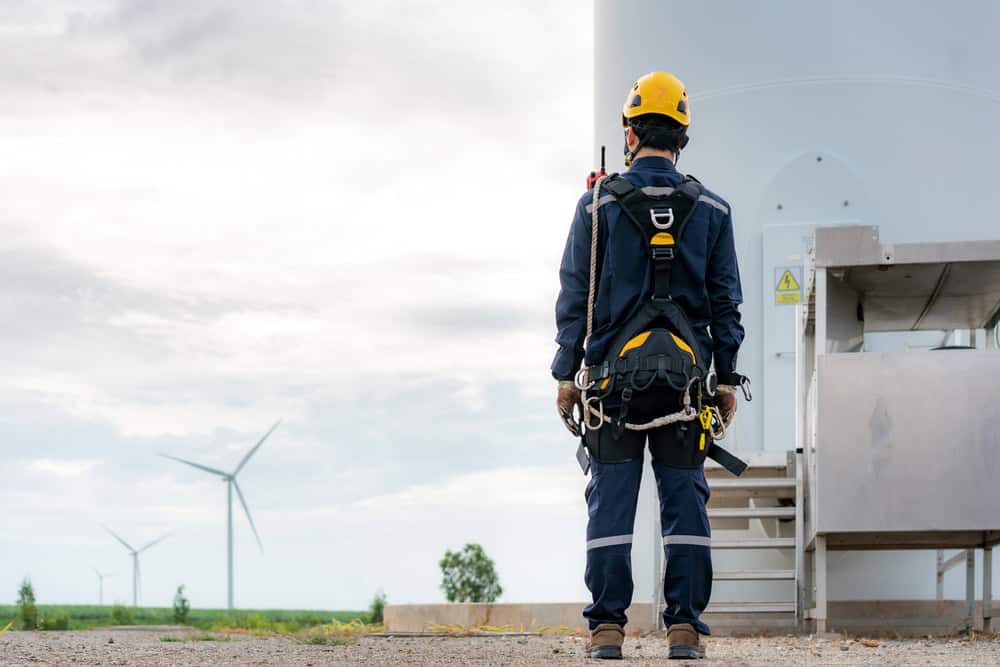
Five trends shaping sustainability in 2025

Making your first ESG hire: how to get it right

